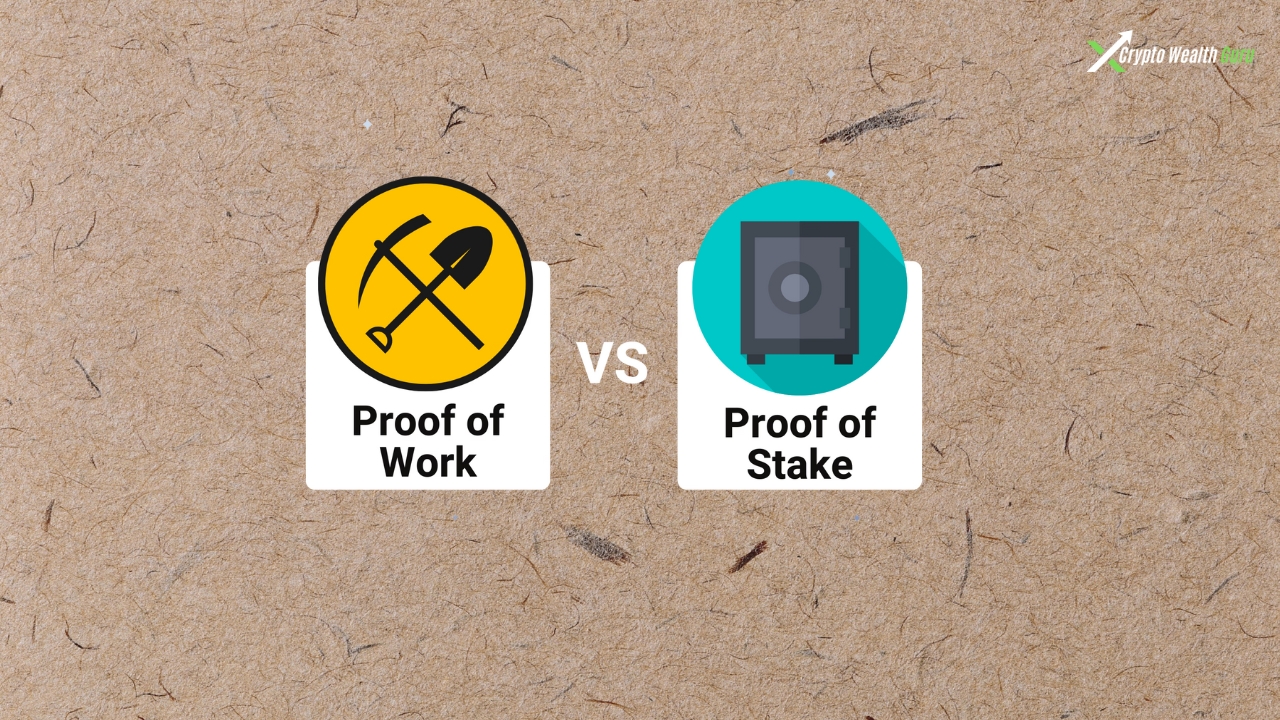Crypto Proof of Work vs Proof of Stake: Key Differences
Why This Stuff Actually Matters
Let’s cut right to it: figuring out the difference between Proof of Work (PoW) and Proof of Stake (PoS) genuinely matters. These are not just buzzwords tossed around by crypto nerds—these are the engine rooms of most tokens and coins out there. Ever tried to explain to your boomer uncle why Bitcoin sucks up more electricity than some countries? Yeah, we’ve all been there. The debate isn’t just technical; it’s about which system shapes the money of the future, makes your investments safe, and maybe doesn’t melt a polar bear along the way.coincub+2
FYI, I remember first learning about these when my GPU sounded like it might launch into orbit. It taught me quickly that PoW isn’t exactly “eco-friendly.”
Proof of Work: The Old School Legend
What Actually Is Proof of Work?
Proof of Work is the OG in crypto consensus land. Bitcoin brought this beast into the limelight back in 2009. PoW means miners use wild amounts of computer power to solve tricky math puzzles. The first one to crack it? They get to add the next block, and, surprise, pocket some sweet, sweet coins.rockitcoin+2
How PoW Works—In Plain English
- Miners: Real people and their computers race to solve puzzles (hashing stuff).
- Winning: First miner to get it right adds the next block and scores a reward (think of it as blockchain Mario Kart, except expensive and not as magical).
- Big Costs: You need powerful gear, meaning rigs that double as space heaters and energy bills that’ll make you cry.businessinsider+1
Why Proof of Work? (Besides Draining Your Wallet)
- Security by Brawn: Hacking or faking blocks would need a villain to control over half of all computing power in the entire network. Yeah, good luck with that.
- Truly Decentralized: Anyone can try mining (as long as they live somewhere with cheap electricity and… a space suit?).
- Drawbacks: Consume a ton of electricity. Some days I check Bitcoin’s carbon footprint and consider investing in solar panels instead.wikipedia+2
Classic Coins That Use PoW
- Bitcoin (BTC)
- Dogecoin (DOGE)
- Litecoin (LTC)
- Ethereum…until it said “see ya” and moved to PoS in 2022.rockitcoin+1
Proof of Stake: The New Kid on the Blockchain
So, What Is Proof of Stake?
Instead of relying on huge computer farms, PoS says, “Hey, show me how much skin you’ve got in the game.” You can validate transactions by locking up (staking) your own coins. The bigger the stake, the better your odds of mining (or ‘validating’) the next block. Imagine it as a lottery—except you buy more tickets just by owning more coins. No, you don’t need to buy a spaceship GPU.hedera+2
Breaking Down PoS the Friendly Way
- Validators: People keep their crypto “locked up” to join the party.
- Selection Process: The network picks validators randomly, but bigger staked amounts = higher chance.
- Rewards: You earn transaction fees (and sometimes brand new coins) just by showing up with a fat stack.
- Equipment Needed: A laptop and a decent connection will do, thanks.
Why Stake Instead of Work?
- Eco-Friendly: No farms of computers chugging away. The planet (and your power bill) is grateful.
- Faster Transactions: Less waiting, more doing. Scalability = win.
- Security (Sort Of): If validators cheat, the network slashes their staked coins. Ouch, don’t mess up.investopedia+1
Popular PoS Coins
- Ethereum (ETH): Switched from PoW in 2022. Yup, blockchain drama is real.
- Cardano (ADA)
- Polkadot (DOT)
- Solana (SOL)
Proof of Work vs Proof of Stake: The Showdown
Alright, let’s put these two gladiators side by side and see who’s got the stronger pitch. Ready for a no-holds-barred rundown?
| Feature | Proof of Work (PoW) | Proof of Stake (PoS) |
|---|---|---|
| How Winners Are Picked | First to crack math puzzles (miners) rockitcoin | Random selection weighted by stake investopedia |
| Cost to Enter | Massive hardware and power bills rockitcoin+1 | Just hold and stake coins coincub |
| Energy Use | Through the roof—think entire countries’ worth businessinsider | Minimal, almost chill in comparison coincub |
| Decentralization | Theoretically anyone, but rich miners have the edge coincub | Wealthier folks can buy more influence coincub |
| Security | Top-notch, battle-tested rockitcoin+1 | Great, but newer and “slashing” dependent coincub+1 |
| Speed & Scalability | Slow and steady (Bitcoin, etc.) coincub | Fast and furious; great for tons of users coincub |
| Environmental Impact | Ouch—high emissions and e-waste coincub+2 | Low emissions, lower hardware needs coincub |
| Examples | Bitcoin, Dogecoin, Litecoin businessinsider | Ethereum, Cardano, Solana investopedia |
Bold points worth repeating? PoW drains energy like there’s no tomorrow, but PoS could centralize power (pun intended) by giving more say to rich stakers. No magic bullets, just trade-offs.
Security: Can Anyone Actually Hack These Things?
Ever wondered why these systems work at all? Why can’t some bored billionaire just mess up the whole system? Here’s the tea:
- PoW Security: You’d need to outgun the entire network—it’s possible in theory but insanely expensive. Most attackers take one look at the bill and nope out fast.
- PoS Security: Would-be hackers must buy up a huge chunk of the coin, risking their own money. Also, networks can “slash” their stake for being shady, so you’re basically gambling with your own cash. Not something most people fancy doing.coincub+1
Scalability and Speed: Who Wins?
No one wants to wait half an hour for their coffee—same goes for blockchain transactions.
- PoW: Lags behind in speed. Bitcoin averages a new block every 10 minutes. That’s like waiting for your favorite pizza joint on Friday night—slow but (arguably) worth it.
- PoS: Aims for lightning speed. Ethereum’s PoS upgrade (and others) can process way more transactions, so you might actually see instant confirmations on busy networks.investopedia+1
Environmental Impact: Save the Whales (Or At Least Your Electric Bill)
- Proof of Work gobbles up power like a kid at a candy shop. It’s become a legitimate concern—think headlines about Bitcoin using “more energy than entire countries.” Yikes.
- Proof of Stake uses a fraction of the energy. If you care about the planet, PoS wins hands down (unless, of course, you’re aiming for “Bond villain” status).businessinsider+2
Real-Life Insights: What Actually Happens When You Try These?
IMO, running a PoW miner feels like running an industrial fan in a phone booth—hot, loud, and not super practical unless you get electricity for free. I’ve set up a very, very basic rig. The power bill made me realize staking might actually, literally, save the planet (or at least my bank account).
I’ve also delegated ETH to a staking pool. It took a few clicks, no noise, and I made some passive returns—all from my couch. Sure, the returns aren’t wild, but I also didn’t have to install a mini-nuclear reactor in my living room 😉
The Downsides Nobody Likes to Talk About
Let’s be honest, every system has baggage:
- PoW: Huge energy waste, hardware waste, and not exactly “user-friendly” for most people.
- PoS: Leads to “the rich get richer” complaints, since those with the most coins can stake the most and earn more.coincub+1
- Centralization Risks: Both can become dominated by big players—mining farms in PoW, whale stakers in PoS.
- New Tech, New Risks: PoS is newer, so some folks worry it hasn’t faced its “Bitcoin 2013” moment yet. Time will tell.rockitcoin+1
Which One Rules? The Takeaway
Alright, so you’re here for the million-dollar question: Which one’s better?
If you love iron-clad security and don’t mind a few thousand extra bucks on your electric bill, Proof of Work has proven itself over a decade. But if you want something that’s scalable, eco-friendly, and maybe lets you sleep at night (without the hum of 20 GPUs), Proof of Stake is tough to beat.
In real life, most new projects go PoS or some hybrid model. PoW’s not dead—Bitcoin will keep on truckin’—but PoS has the momentum for swifter, greener networks.
Oh, and for the “Wen Lambo?” crowd—DYOR always, because blockchains are moving fast, and next year’s winner might be something new altogether. If you want a laugh, try explaining “staking” to your grandma and see how that conversation goes. 😀investopedia+3
Final Thoughts (And A Tiny Nudge)
Crypto keeps evolving. Both PoW and PoS have their die-hard fans, but the best chain is the one that fits a project’s needs, the planet’s limits, and yep—even your wallet. Personally, I’d rather stake coins in my slippers than power up a mining rig, but that’s just me.
Got opinions or horror stories from the mining trenches? Ever roasted marshmallows over a PoW mining rig? Share them with some friends—or better yet, drop a comment where people love to rant about crypto. Because isn’t half the fun in this space just arguing over “which is best” anyway? 😉
Now—grab a coffee, check your portfolio, and remember: not all heroes wear capes. Some run validator nodes.
Further Reading
- Learn more about Proof of Workwikipedia+2
- Deep dive into Proof of Stakehedera+2
- Stay green, stay smart, always stay skeptical (and maybe unplug your rig before your next power bill).







